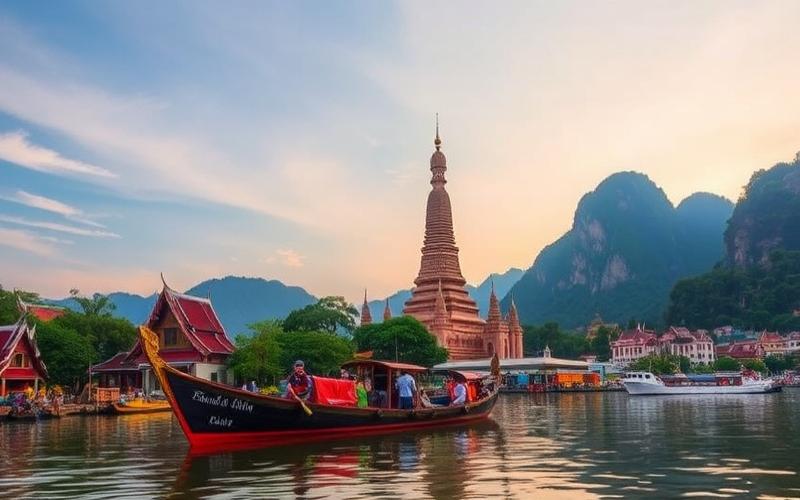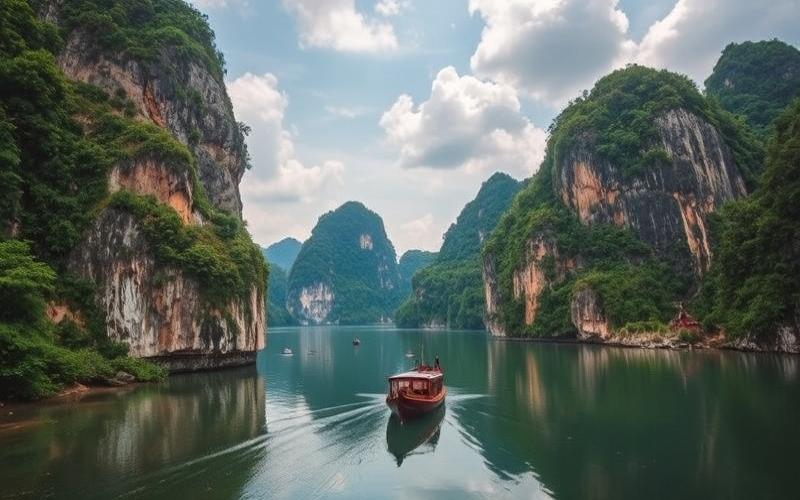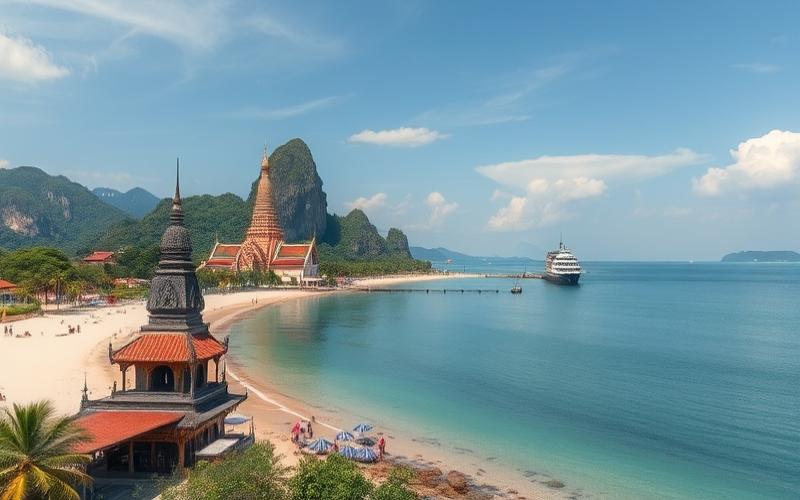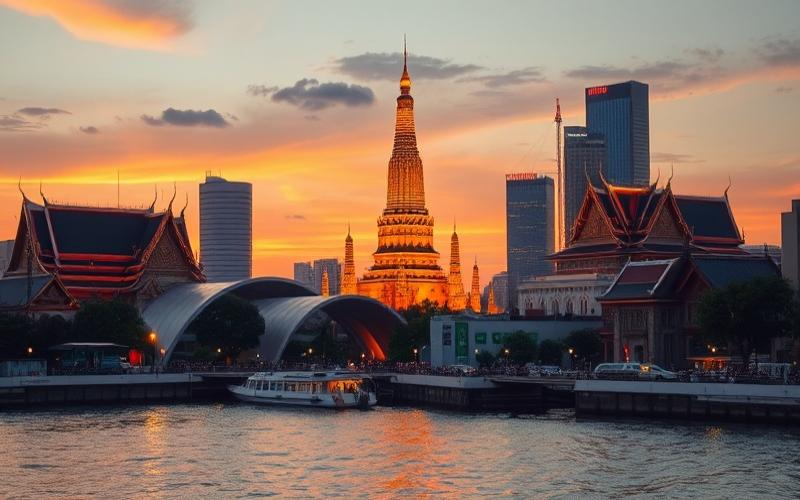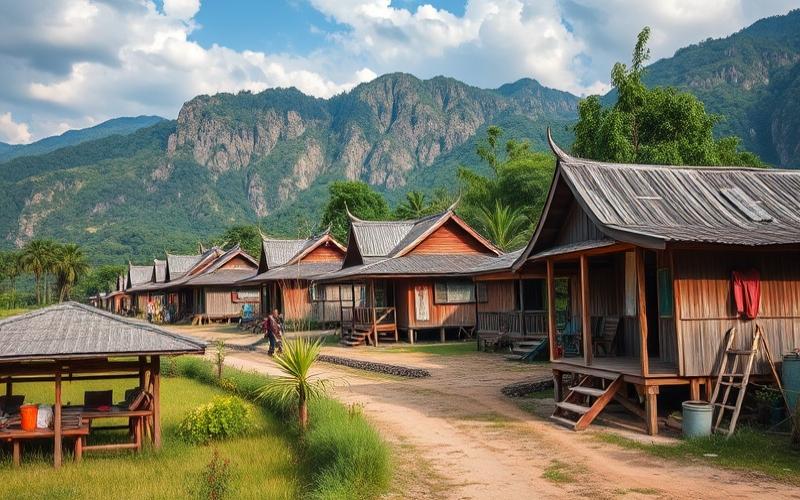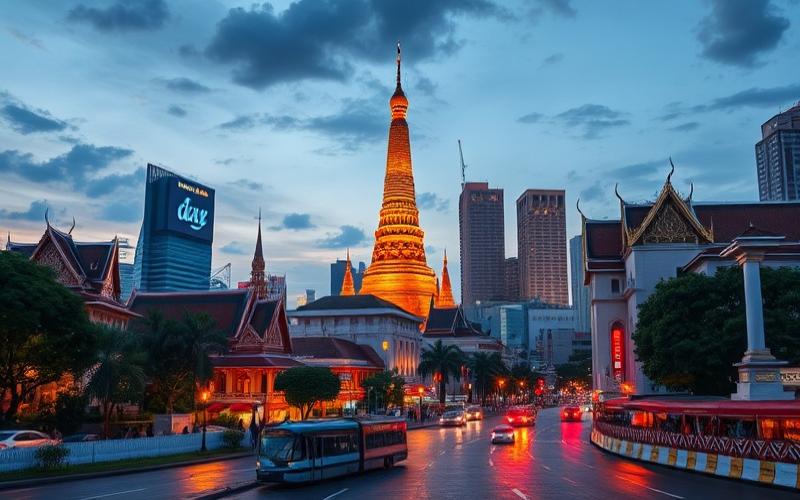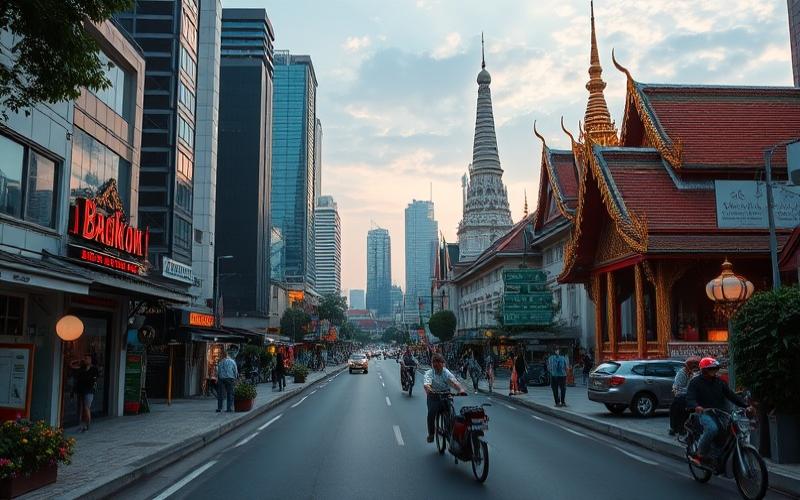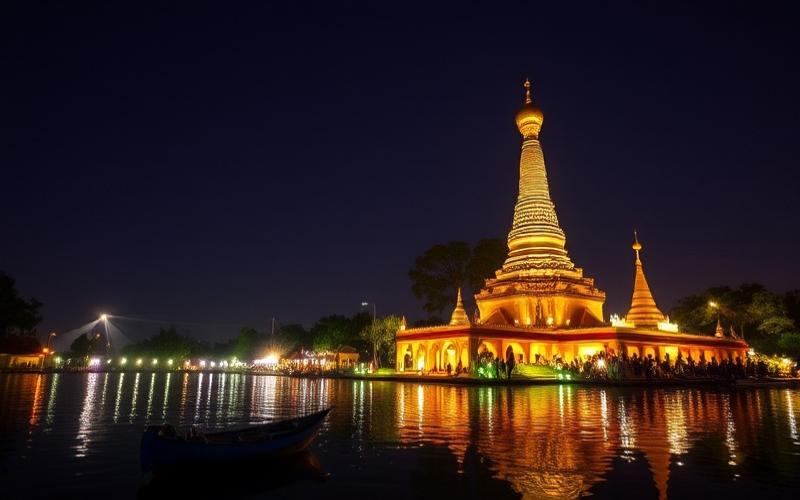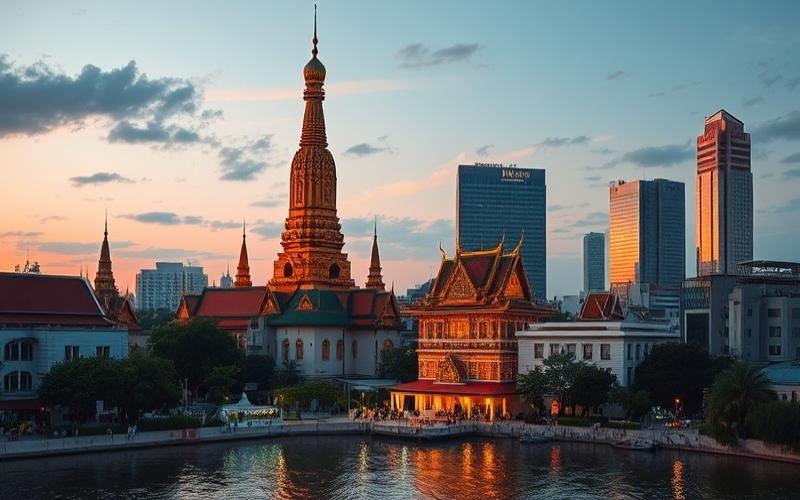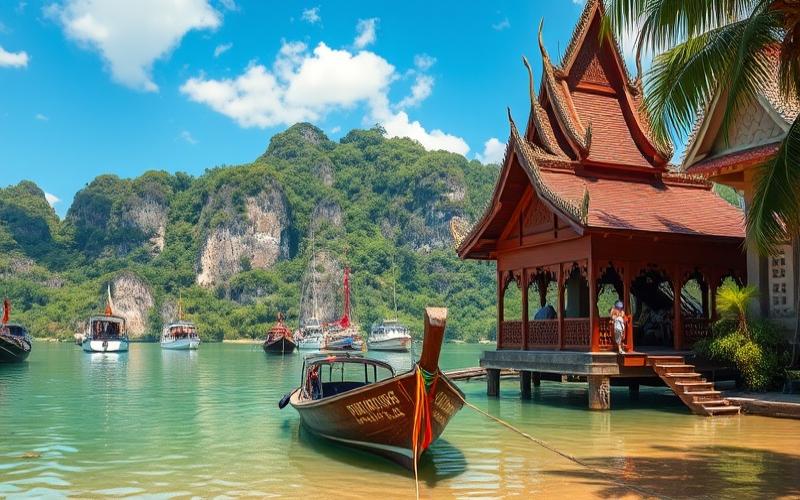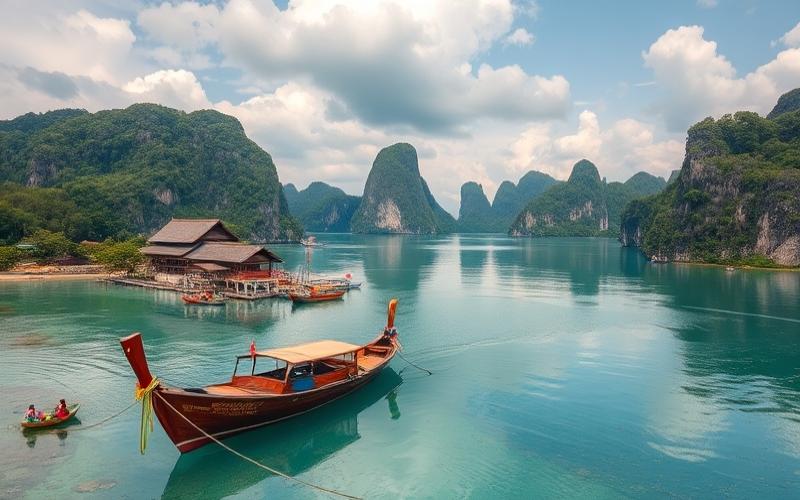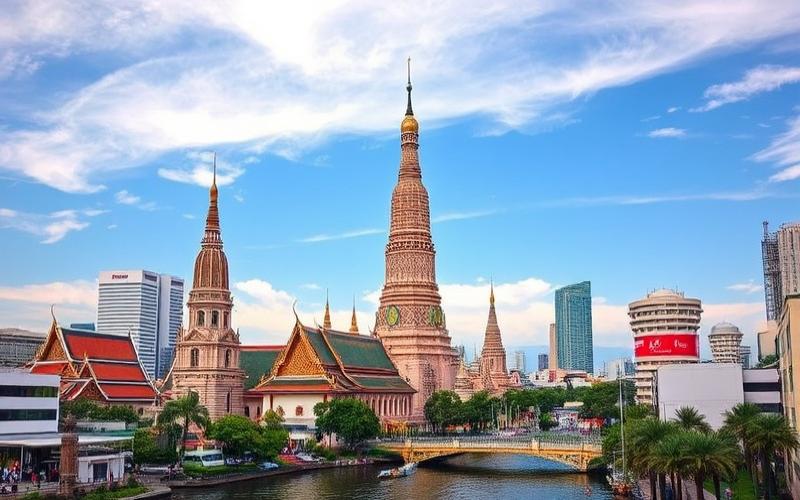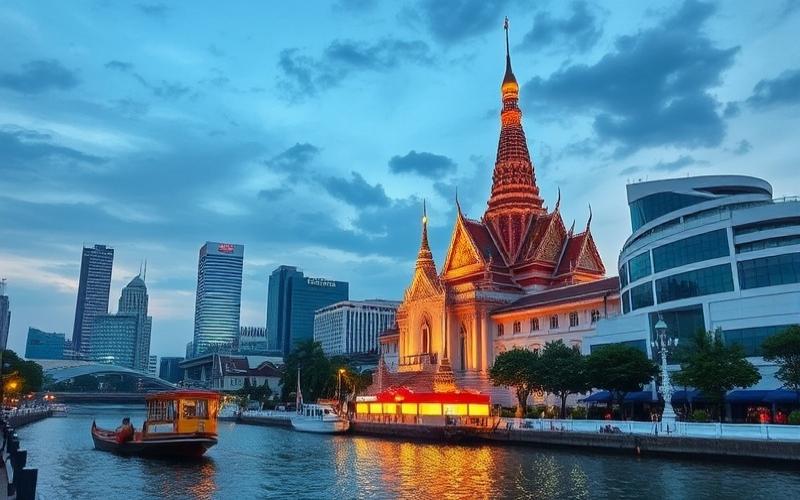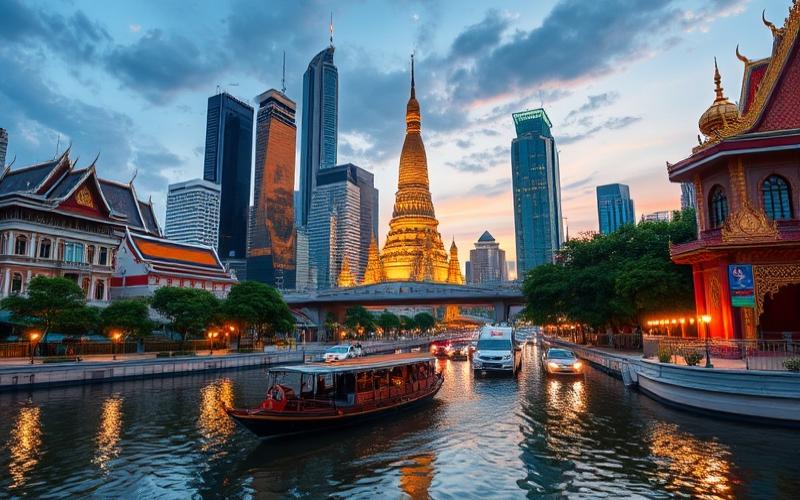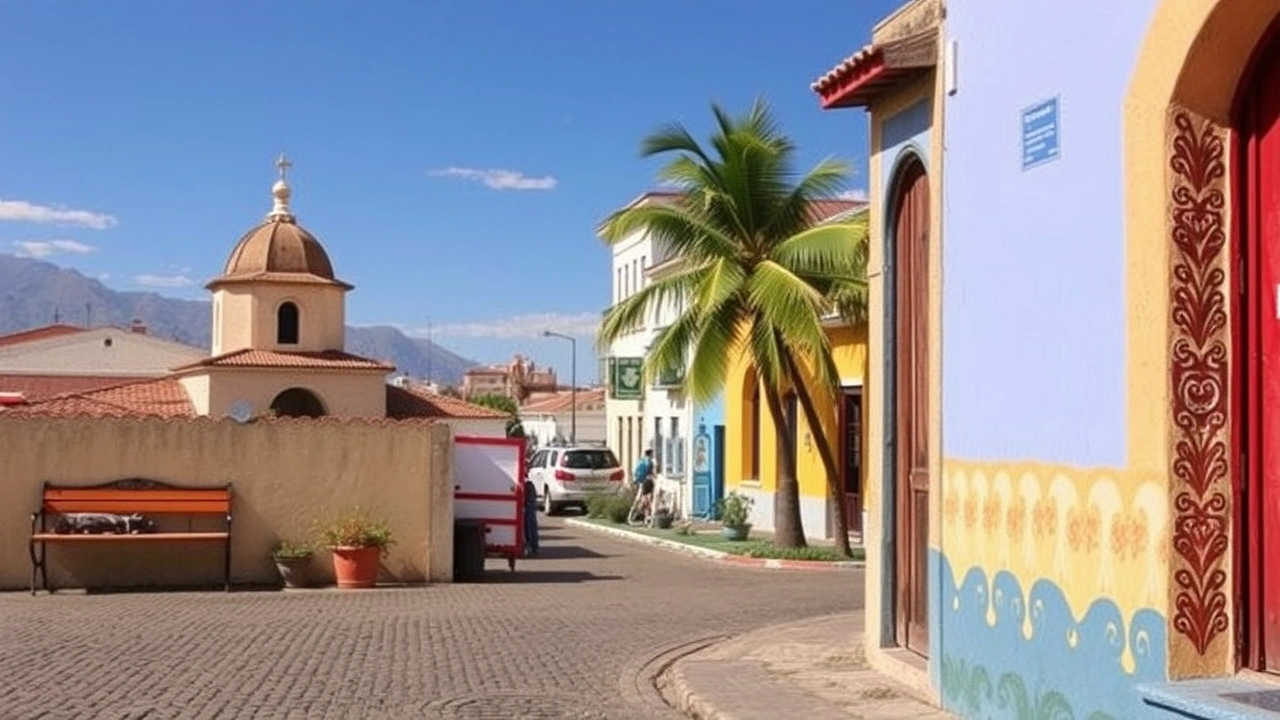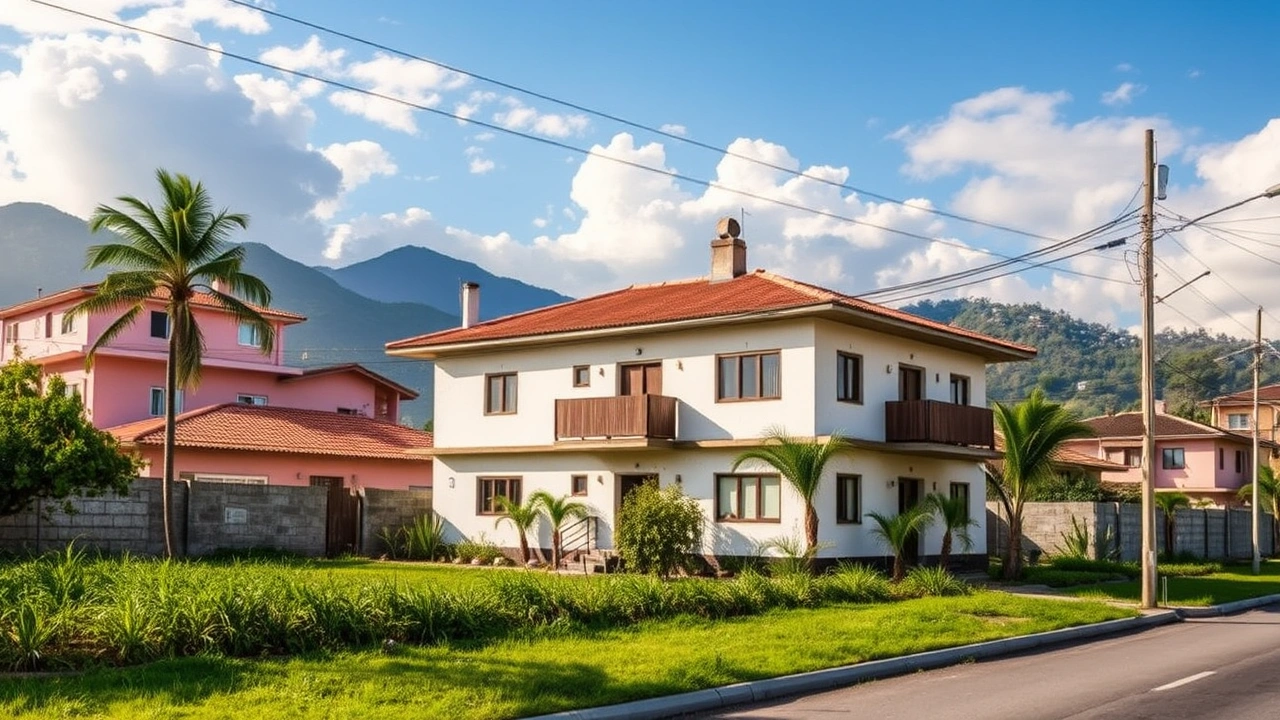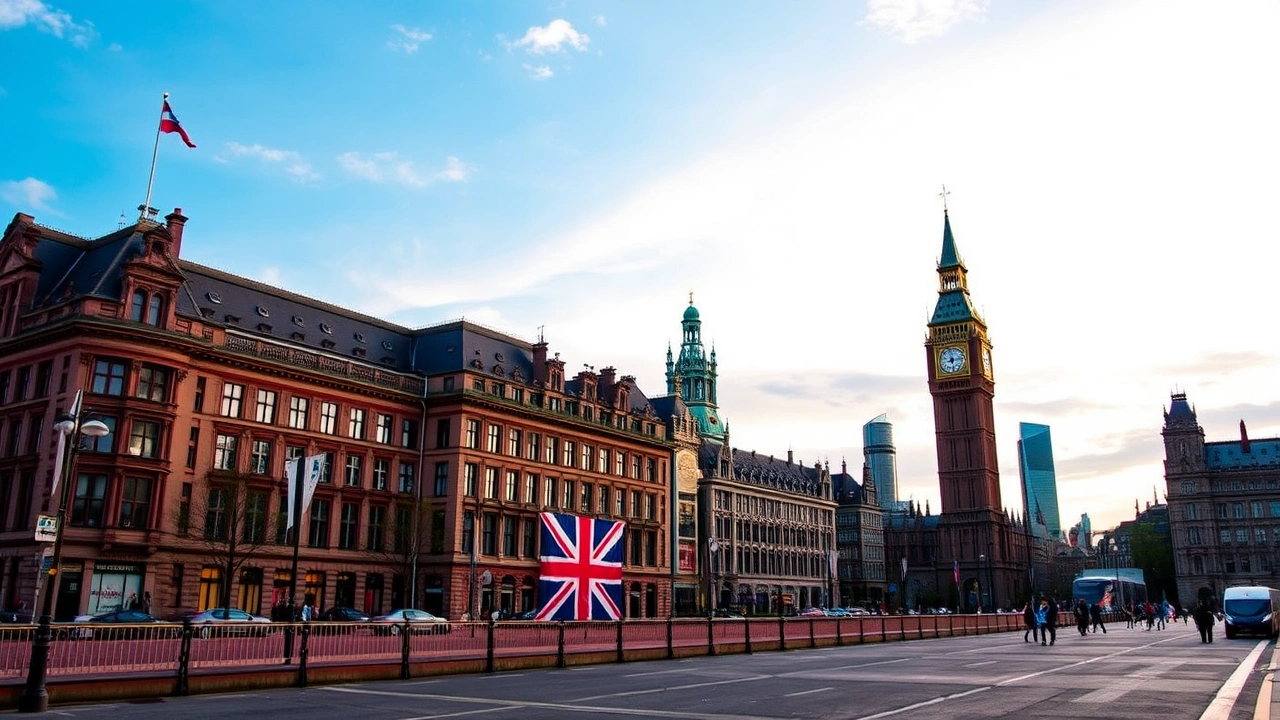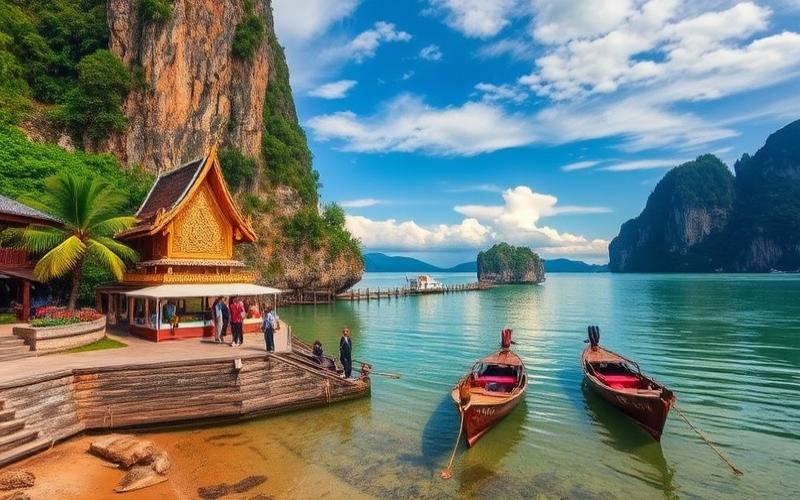
 Published on and written by Cyril Jarnias
Published on and written by Cyril Jarnias
Thailand attracts many foreign real estate investors drawn to its paradise beaches, rich culture, and affordable cost of living. Whether you already own property or are considering acquiring some, renovation can be an excellent way to increase its value and adapt it to your needs. This article will guide you through the key steps to successfully complete a renovation project in Thailand, taking local specificities into account.
Why Renovate Your Thai Property?
Renovating a property in Thailand offers numerous advantages:
- Increased property value on the local real estate market
- Improved comfort and quality of life
- Adaptation to modern construction standards and current tastes
- Optimized energy efficiency
- Potential for higher rental income
Renovation is particularly relevant in popular tourist areas like Phuket, Koh Samui, or Bangkok, where demand for quality properties is strong.
From Planning to Completion: Key Steps for Your Project
Renovating in Thailand requires good preparation and consideration of certain local particularities. Here are the main steps to follow:
1. Assessment and Planning
Start by conducting a detailed assessment of your property and clearly define your renovation goals. Hire a local architect or interior designer to help conceptualize your project. They can advise you on styles and materials suitable for the tropical climate.
2. Obtaining Necessary Permits
In Thailand, certain renovation works require permits. Check with local authorities, especially if you plan significant structural modifications. A lawyer specializing in real estate law can guide you through these administrative procedures.
3. Selecting Professionals
Choose your service providers carefully: architect, general contractor, artisans… Prioritize companies accustomed to working with foreign clients and with good references. The language barrier can be a challenge, so consider hiring a bilingual project manager.
4. Work Execution
Regularly supervise the construction site’s progress. Clear and frequent communication with your team is essential to avoid misunderstandings and ensure the quality of the final result.
5. Quality Control and Finishing
Once the major structural work is complete, pay special attention to the finishing touches. This is often where the perceived quality of the renovation is determined. Don’t hesitate to have imperfections corrected before the final handover of the work.
Good to Know:
In Thailand, the rainy season (generally from May to October) can impact the progress of work, especially for exterior projects. Plan your project accordingly.
Financing Your Renovation: Options and Strategies
Financing is a crucial aspect of any renovation project. In Thailand, several options are available to you:
Self-Financing
If you have the necessary funds, self-financing is often the simplest solution. However, ensure you maintain a safety margin to handle unexpected costs.
Local Bank Loan
Some Thai banks offer renovation loans to foreigners, but conditions can be restrictive. You will generally need to prove proper ownership title and sometimes a Thai work permit.
Mortgage Refinancing
If you already have a mortgage, refinancing can be an option to free up additional funds. Consult your bank to explore this possibility.
Private Investors
In some cases, particularly for renovation projects intended for rental, you might consider approaching private investors. Make sure to formalize the agreement properly to avoid future disputes.
Regardless of the chosen financing method, establish a detailed budget including a contingency margin, typically around 10-15% of the total estimated cost.
Good to Know:
Labor costs in Thailand are generally lower than in the West, but imported materials can be more expensive. A good balance between local and imported materials can help you optimize your budget.
Materials and Design: Between Tradition and Modernity
The choice of materials is crucial for the success of your renovation in Thailand. You need to find the right balance between aesthetics, durability, and adaptation to the local climate.
Traditional Materials
- Teak wood: Highly valued for its beauty and resistance, but increasingly rare and expensive.
- Bamboo: Eco-friendly and versatile, ideal for lightweight structures and finishes.
- Natural stone: Local granite and marble offer coolness and elegance.
Modern Materials
- Polished concrete: Trendy for contemporary interiors, it offers coolness and easy maintenance.
- Tempered glass: Ideal for maximizing brightness while resisting weather conditions.
- Stainless steel: Corrosion-resistant, perfect for exteriors.
Climate Adaptations
- Thermal insulation: Choose insulating materials for roofs and exterior walls.
- Natural ventilation: Plan strategic openings to promote air circulation.
- Sun protection: Install awnings or louvers to reduce heat.
Don’t hesitate to mix styles to create a unique interior that combines traditional Thai charm with modern comfort.
Good to Know:
Local materials are often cheaper and better suited to the climate. However, for specific equipment (air conditioning, high-end appliances), imported products may offer better quality and durability.
Renovating a property in Thailand can be an exciting and rewarding adventure. With good planning, a controlled budget, and wise choices regarding design and materials, you can significantly increase your property’s value while creating a living space adapted to your needs and the local lifestyle.
Remember that the key to success lies in good communication with local professionals and an understanding of the country’s cultural and climatic specificities. Take the time to immerse yourself in Thai culture and let yourself be inspired by its rich architectural heritage to create a unique space that combines the best of tradition and modernity.
Disclaimer: The information provided on this website is for informational purposes only and does not constitute financial, legal, or professional advice. We encourage you to consult qualified experts before making any investment, real estate, or expatriation decisions. Although we strive to maintain up-to-date and accurate information, we do not guarantee the completeness, accuracy, or timeliness of the proposed content. As investment and expatriation involve risks, we disclaim any liability for potential losses or damages arising from the use of this site. Your use of this site confirms your acceptance of these terms and your understanding of the associated risks.


